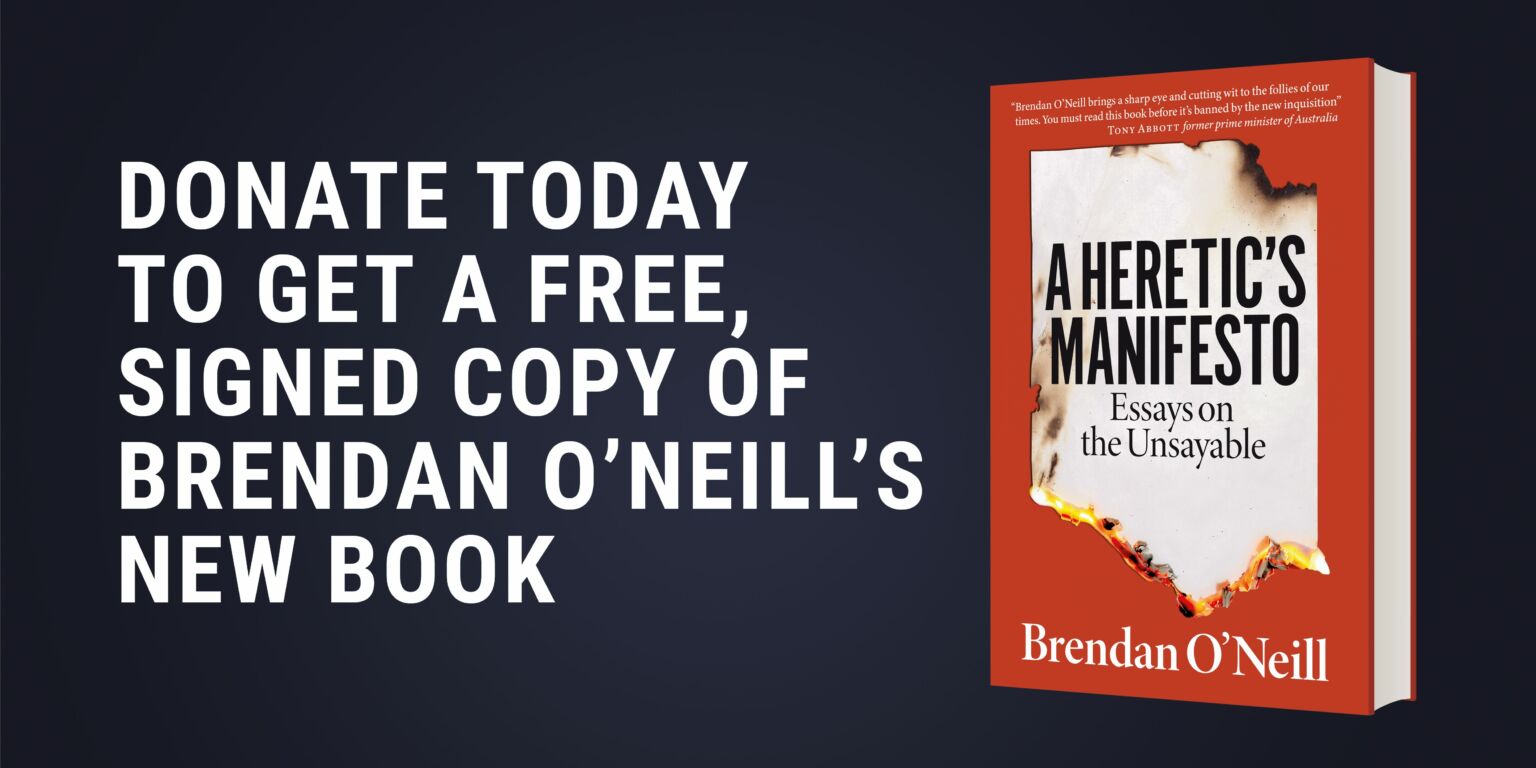The return of the #MeToo showtrial
The CBI has been brought to its knees by highly questionable allegations of sexual assault.

Think back to 2017. As accusations of rape and sexual assault were levelled at film producer Harvey Weinstein, women everywhere began sharing their own stories of harassment and abuse. The #MeToo phenomenon took off. Weinstein was later convicted of rape and duly imprisoned in 2020. But as #MeToo grew, women started making allegations about an increasingly wide range of incidents. Many of these were not criminal – they simply made the women involved feel uncomfortable. These acts of sexual ‘misconduct’ were then tried in the court of public opinion. As a result, men like comedian Aziz Ansari, who had not broken any laws or even workplace rules, lost their reputations and, often, their employment.
The recent sexual-harassment scandal that has engulfed the Confederation of British Industry (CBI), a once powerful business-lobbying group, feels like a throwback to that #MeToo era. While #MeToo eventually ran out of steam and fell out of fashion, many of the practices it engendered – the public shaming, trial by social media and unpersonning of the accused – never went away. Indeed, as the CBI saga demonstrates, institutions are now quicker than ever to act first and ask for evidence later when allegations emerge.
Events were set in motion at a Christmas karaoke party in 2021, when a young female employee bonded with the then director general of the CBI, Tony Danker. Over the course of the following year, they swapped messages, both work-related and informal. Danker would occasionally stop by her desk for a chat. At some point, she began to feel uncomfortable with this.
Then came the incident that precipitated the CBI’s downfall. Danker told the young woman, in the CBI’s open-plan office, that he’d had a dream about them singing karaoke together. Weird? Perhaps. Criminal? Of course not. After the woman made a complaint back in January, Danker’s comment was investigated internally. He insisted there was nothing sexual about the relationship and the investigation was closed with no further action taken. This should have been the end of the matter.
Instead, an outraged group of current and former CBI employees decided to take matters into their own hands. In March, against the wishes of the complainant, they leaked details of the incident to the Guardian, alongside new allegations that Danker had viewed employees’ Instagram profiles (again, hardly illegal). Danker said it was ‘mortifying to hear that I have caused offence or anxiety to any colleague’ and he stepped aside while the complaints were investigated.
A month later, a series of ever more lurid allegations were anonymously leaked to the Guardian. The paper reported that ‘more than a dozen’ women claimed they had been victims of sexual misconduct. This included, most seriously, one woman who alleged she had been raped at a CBI summer boat party. The Guardian also alleged that drug use was widespread at official CBI events. At Easter, Danker was fired.
Yet still, the campaign against the CBI continued. On 21 April, the Guardian reported that a second woman had been raped, this time by two CBI colleagues. Another woman claimed she had been stalked by a male colleague. By the end of that day, more than 50 companies had resigned their membership of the CBI, including major firms like Aviva and John Lewis.
There are reasons to be sceptical of some of the accusations. Although the first rape allegation seems to have cost Danker his job, it actually relates to a time before he was in charge of the CBI. Carolyn Fairbairn, who was director general in 2019 when the alleged incident took place, has said that, as far as she was aware, the boat-party allegation actually related to an incident of inappropriate drunken behaviour that was not sexual. Neither of the alleged rape victims has come forward to the police. An independent investigator found no evidence of widespread drug-taking. And the allegation of stalking ‘bore almost no relation to the actual harassment case handled by the CBI at the time’, according to someone involved in the original investigation.
You might think that the CBI’s higher-ups would want to question some of these allegations. At the very least, you’d think they would recognise that Danker could not possibly have been responsible for allegations concerning incidents that occurred before his time in charge. Instead, the CBI seems to have accepted the Guardian’s reporting wholesale. As Fairbairn explained to The Sunday Times last month: ‘The easiest thing to do, the easy route out, was to say, “We’re a bad organisation, our culture was toxic, that’s why this happened”.’
This week, the CBI survived a confidence vote, after promising major reform of its culture and governance to its members. But with around 30 per cent of its membership having already quit, its influence has been severely diminished. The UK government, which cut ties with the CBI back in April, has refused to say whether it will resume working with it. It seems the easiest thing to do is simply to cut all ties with CBI without asking questions or demanding evidence about any of the allegations that have dragged its reputation through the mud.
Six years on from the first #MeToo allegations, companies are just as quick to drop anyone or anything on the basis of allegations alone. Back in 2017, it quickly became clear that this was ruining people’s lives. Now the rush to cancel first and ask questions later has brought a once powerful institution to its knees. Perhaps it is time we all stopped taking the ‘easy’ route out.
Joanna Williams is a spiked columnist and author of How Woke Won, which you can order here.
Picture by: Getty.
To enquire about republishing spiked’s content, a right to reply or to request a correction, please contact the managing editor, Viv Regan.










Comments
Want to join the conversation?
Only spiked supporters and patrons, who donate regularly to us, can comment on our articles.